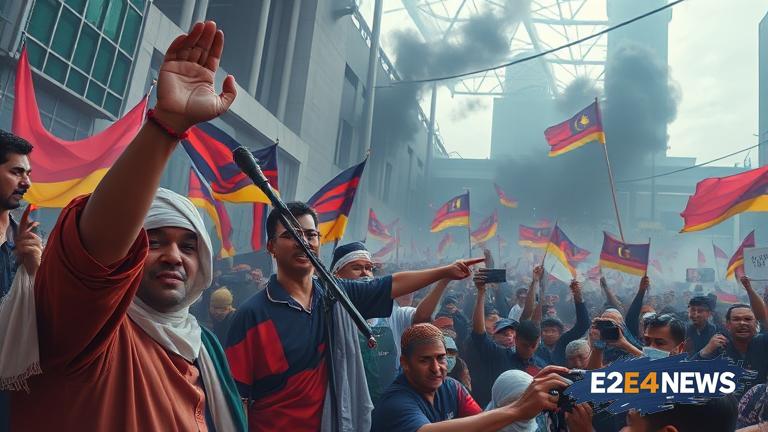In a dramatic turn of events, thousands of protesters took to the streets of Kuala Lumpur, Malaysia’s capital, to demand the resignation of Prime Minister Anwar Ibrahim. The protests, which were largely peaceful, were organized by a coalition of opposition parties and civil society groups. The demonstrators, who came from all walks of life, were united in their call for Anwar’s resignation, citing a range of grievances including corruption, economic mismanagement, and a perceived lack of accountability. The protests were sparked by a series of scandals, including allegations of corruption and cronyism, which have dogged Anwar’s government since it came to power. Despite efforts by the authorities to downplay the significance of the protests, the sheer scale of the demonstrations has sent a clear message to the government that the people will no longer tolerate business as usual. The protesters, who were armed with banners, placards, and flags, marched through the streets of Kuala Lumpur, chanting slogans and demanding Anwar’s resignation. The atmosphere was tense, but largely peaceful, with protesters and police engaging in a series of cat-and-mouse games as the authorities attempted to contain the demonstrations. As the protests gained momentum, opposition leaders took to social media to rally support and urge more people to join the demonstrations. The government, meanwhile, has responded to the protests with a mixture of defiance and conciliation, with Anwar himself dismissing the protests as a ‘minority’ view. However, the scale and intensity of the protests suggest that the opposition is tapping into a deep well of discontent and frustration among the Malaysian people. The protests have also highlighted the deep divisions within Malaysian society, with some supporters of the government accusing the opposition of being ‘traitors’ and ‘foreign agents’. As the situation continues to unfold, it remains to be seen whether the protests will achieve their goal of forcing Anwar’s resignation. However, one thing is clear: the protests mark a significant turning point in Malaysian politics, and will have far-reaching consequences for the country’s future. The international community is watching the situation closely, with many analysts warning that the protests could have a destabilizing effect on the region. The Malaysian economy, which has been struggling in recent years, is also likely to be affected by the protests, with investors and businesses expressing concern about the impact of the instability on the country’s economic prospects. As the protests continue, the government will be under increasing pressure to respond to the demands of the demonstrators, and to address the underlying issues that have driven the protests. The opposition, meanwhile, will be seeking to capitalize on the momentum of the protests, and to build a broader coalition of support for their cause. The coming days and weeks will be crucial in determining the outcome of the protests, and the future of Malaysian politics. The protests have also raised questions about the role of social media in modern politics, with many protesters using platforms such as Twitter and Facebook to organize and mobilize support. The government, meanwhile, has been accused of attempting to suppress the protests by restricting access to social media and imposing censorship on the press. As the situation continues to evolve, it remains to be seen whether the protests will achieve their goal of forcing Anwar’s resignation, and what the long-term consequences will be for Malaysian politics and society. The protests have also highlighted the importance of democratic values and the rule of law, with many protesters demanding greater accountability and transparency from the government. The international community has a crucial role to play in supporting the democratic aspirations of the Malaysian people, and in promoting a peaceful and stable resolution to the crisis. The United States, China, and other major powers have all issued statements calling for calm and restraint, and urging the government to engage in dialogue with the opposition. As the protests continue, the world will be watching to see how the situation unfolds, and what the ultimate outcome will be.
